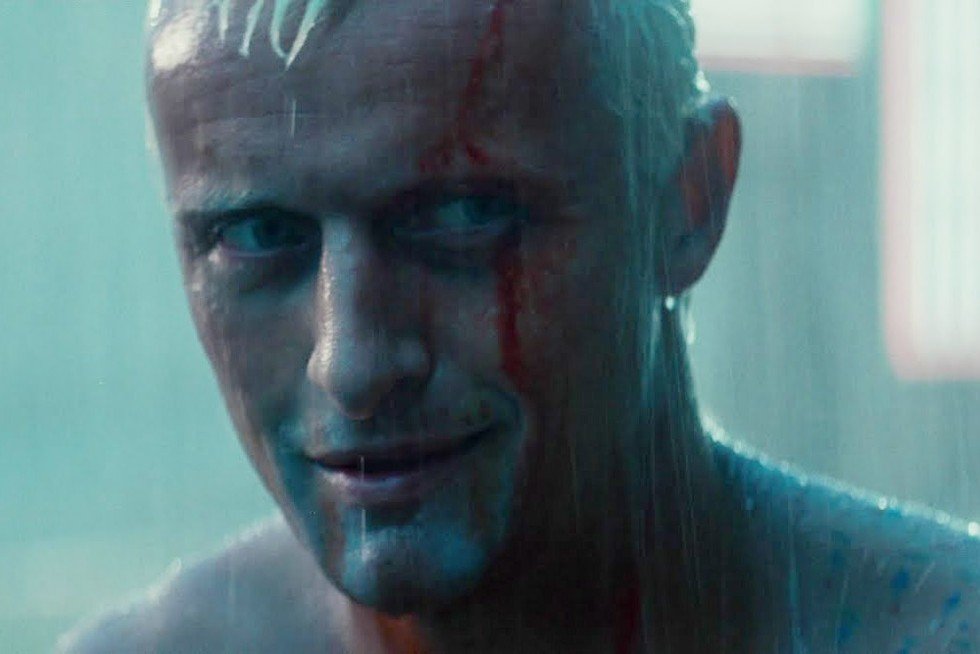Roy Batty’s Final Words: Decoding the Most Iconic Monologue in Sci-Fi
The “Tears in rain” monologue, delivered by Roy Batty in Ridley Scott’s seminal film “Blade Runner,” stands as one of the most powerful and moving speeches in cinematic history. This brief soliloquy, uttered in the final moments of Batty’s life, encapsulates the themes of mortality, humanity, and the ephemeral nature of existence that permeate the film.
The monologue begins with the haunting line, “I’ve seen things you people wouldn’t believe.” This immediately sets Batty apart from the audience and the other characters, emphasizing his unique experiences as a replicant. He then recounts vivid, otherworldly images:
“Attack ships on fire off the shoulder of Orion”
“C-beams glitter in the dark near the Tannhäuser Gate”
These poetic descriptions serve multiple purposes. They highlight the extraordinary nature of Batty’s experiences, underscore the advanced technology of the film’s universe, and create a sense of wonder and loss. The imagery is intentionally vague, allowing viewers to imagine these fantastic sights for themselves.
The monologue reaches its emotional crescendo with the line, “All those moments will be lost in time, like tears in rain.” This metaphor beautifully captures the transient nature of life and memory. Just as raindrops are indistinguishable once they fall, Batty recognizes that his experiences and very existence will soon fade into oblivion.

What makes this speech particularly poignant is the context in which it’s delivered. Moments before, Batty saved the life of Deckard, the man sent to “retire” him. This act of mercy, coupled with his reflective words, forces the audience to reconsider their perception of Batty as a villain. In his final moments, he displays a profound understanding of life and death that surpasses that of his human counterparts.
It’s worth noting that Rutger Hauer himself played a significant role in crafting this iconic moment. While the original script contained a longer monologue, Hauer condensed it and added the crucial “tears in rain” line the night before filming. This collaborative effort between actor and script resulted in a moment of cinematic magic.
The impact of this monologue extends far beyond “Blade Runner.” It has been referenced, parodied, and paid homage to in numerous works of popular culture. Its enduring popularity speaks to its universal themes and the powerful way it encapsulates the human experience of grappling with mortality.
In just a few dozen words, Roy Batty’s final monologue manages to distil complex philosophical questions about the nature of humanity, the value of individual experience, and the inevitability of death. It remains a testament to the power of science fiction to explore profound truths about the human condition.
What is the “Tears in Rain” monologue?
The “Tears in Rain” monologue is the final speech given by the character Roy Batty in the 1982 science fiction film “Blade Runner.” It’s a brief but powerful soliloquy delivered just before Batty’s death, reflecting on his experiences and the nature of existence.
Who wrote the monologue?
The original monologue was written by David Peoples, one of the screenwriters for “Blade Runner.” However, actor Rutger Hauer, who played Roy Batty, significantly revised and shortened the speech the night before filming, including adding the famous “tears in rain” line.
What is the full text of the monologue?
The full text is: “I’ve seen things you people wouldn’t believe. Attack ships on fire off the shoulder of Orion. I watched C-beams glitter in the dark near the Tannhäuser Gate. All those moments will be lost in time, like tears in rain. Time to die.”
What does the monologue mean?
The monologue explores themes of mortality, the value of individual experience, and the transient nature of life. It suggests that even extraordinary experiences will eventually be forgotten, like tears disappearing in rain.
Why is this monologue considered so significant?
The monologue is praised for its poetic beauty, emotional depth, and the way it encapsulates the film’s themes in just a few lines. It also represents a pivotal moment of humanity from a character previously seen as the antagonist.
Has the monologue influenced popular culture?
Yes, the monologue has been widely referenced, parodied, and homaged in various forms of media, including other films, TV shows, literature, and music. It’s considered one of the most memorable speeches in science fiction cinema.